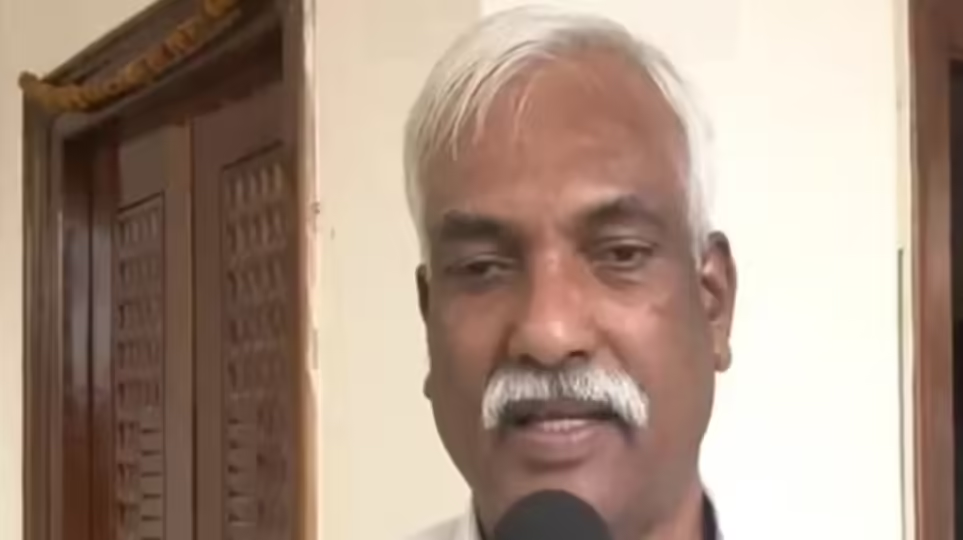BJP’s Reddy Cites India Bloc’s Internal Discord, Governance Contrasts in High-Stakes Campaign
Tue, 11 Feb 2025

Bharatiya Janata Party (BJP) leader Prakash Reddy scrutinized the opposition India Bloc, describing its current state as a “phase of stagnation and disarray.” Speaking at a campaign event ahead of the 2024 elections, Reddy emphasized internal conflicts within the India Bloc, referencing recent instances of public disagreements among its member parties. According to election commission records, the bloc’s vote share in Delhi declined by 8% between 2019 and 2023, coinciding with visible fragmentation in its regional alliances. Analyses of electoral trends reveal that the India Bloc, a coalition of opposition parties, has struggled to consolidate its presence in Delhi since 2020. Data from the Association for Democratic Reforms (ADR) indicates that 12 of its 28 Delhi-based legislators have faced intra-party disputes since 2021, with three switching allegiance to rival groups. Reddy highlighted these figures, suggesting a lack of cohesive leadership and ideological alignment. Meanwhile, the BJP has maintained a consistent 45-48% vote share in the capital over the past five years, per independent pollster reports. Corruption allegations have further complicated the India Bloc’s campaign. The Delhi Anti-Corruption Bureau registered 17 cases against opposition legislators between 2022 and 2023, including charges of financial mismanagement and graft. Reddy cited these statistics, contrasting them with the BJP’s emphasis on transparency. Central government audits report that 94% of Delhi’s centrally funded infrastructure projects, such as metro expansions and highway upgrades, were completed within deadlines under BJP-aligned municipal oversight since 2019. Economic indicators underscore the BJP’s governance claims. Delhi’s Gross State Domestic Product (GSDP) grew by 7.1% in FY 2022–23, exceeding the national average of 6.7%, according to Reserve Bank of India data. Unemployment rates in the capital fell to 6.8% in 2023 from 10.2% in 2020, as per the Centre for Monitoring Indian Economy (CMIE). The BJP attributes this growth to policies like the Smart City Initiative, which allocated ₹8,250 crore to Delhi’s urban development between 2020 and 2023. Recent opinion polls by agencies like CSDS-Lokniti project the BJP leading in 55 of Delhi’s 70 assembly seats, citing voter preference for “stability and infrastructure growth.” Conversely, the India Bloc’s campaign, focused on welfare schemes and social equity, has yet to gain comparable traction, with only 28% of surveyed voters endorsing its governance model. Political analysts note that the bloc’s reliance on fragmented regional agendas has diluted its messaging. As Delhi prepares for elections, the BJP’s emphasis on data-backed governance outcomes—such as reduced air pollution levels (PM2.5 concentrations dropped by 18% between 2019 and 2023) and increased public transport usage—appears to resonate with middle-income voters. Meanwhile, the India Bloc’s efforts to address affordability crises, including rising utility costs and housing shortages, face challenges amid allegations of unfulfilled promises in allied states. Electoral outcomes may hinge on Delhi’s youth demographic, which constitutes 34% of its voting population. Surveys indicate that 52% of voters aged 18–35 prioritize employment and infrastructure, sectors the BJP has heavily marketed. The India Bloc’s pledge to expand educational subsidies and healthcare access trails by 14 percentage points in the same demographic, reflecting a potential disconnect in campaign priorities. With campaigning entering its final phase, both alliances are leveraging data to refine strategies. The BJP’s focus on quantifiable development metrics contrasts sharply with the India Bloc’s struggle to unify its narrative. As Reddy concluded, “Delhi’s voters seek clarity, not chaos,” a sentiment echoed in recent voter turnout projections emphasizing decisive governance over fragmented opposition.
